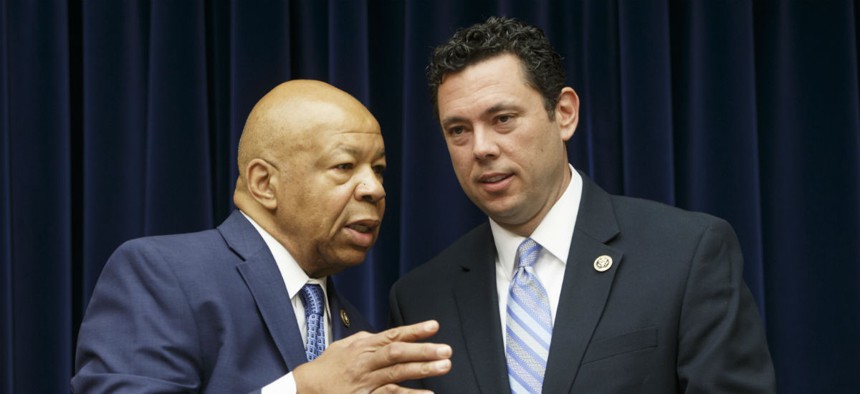New Whistleblower Protections for Contractors Gain Traction in Congress
Bipartisan House bill would loop in subcontractors and make experimental rules permanent.
A bipartisan group of House members on Thursday unveiled a Whistleblower Protections for Contractors Act (H.R. 5920), following movement last month on a similar bill in the Senate.
The bipartisan measure would give subgrantees and personal services contractors the same whistleblower protections currently afforded contractors, grant recipients and subcontractors.
“Whistleblowers are the front line of defense against waste, fraud, and abuse," read a joint statement from Reps. Elijah Cummings, D-Md.; Jason Chaffetz, R-Utah; John Conyers, D-Mich.; Stephen Lynch, D-Mass.; and Hakeem Jeffries, D-N.Y. "The employees who work on federal contracts and grants see firsthand when taxpayer money is being wasted, and they must be protected against retaliation when they blow the whistle on wrongdoing. This bill makes such protections permanent and ensures more employees are covered.”
The House version—rolled out with only a month of legislative days left on the election-year calendar-- is a companion to S. 795, introduced in March 2015 by Sen. Claire McCaskill, D-Mo.
S. 795 cleared the Senate Homeland Security and Governmental Affairs Committee in June and sits at the Armed Services Committee. “If the whistleblowers that work for contractors do not have the same protections as federal employees, we are saying to contractors we do not think wrongdoing by you is that important,” McCaskill said in the committee’s report, noting that the government spends half a trillion dollars on contracting annually.
The pilot program protecting whistleblowers at sub-units was enacted as part of the 2009 Recovery Act.
David Berteau, president and CEO of the 400-company-member Professional Services Council, praised the bill. “It expands protections for those I think deserve them, and I like the idea of taking a pilot program and making it permanent,” he told Government Executive. “As part of the government’s workforce, contactors need protections that are in line with [those for] federal employees.”
In the end, however, the impact will depend on “how well the protections are executed,” Berteau added. “Contractors do need some level of due process since an allegation is not the same as a conviction. Government has its own internal mechanisms, but they’re not the same for contractors.”
The nonprofit Project on Government Oversight also welcomed the bill it has long favored. “With over a trillion dollars at stake, it is encouraging to see Congress take steps to protect those who are best positioned to expose fraud and waste on federal contracts and grants,” the organization said in an email.




